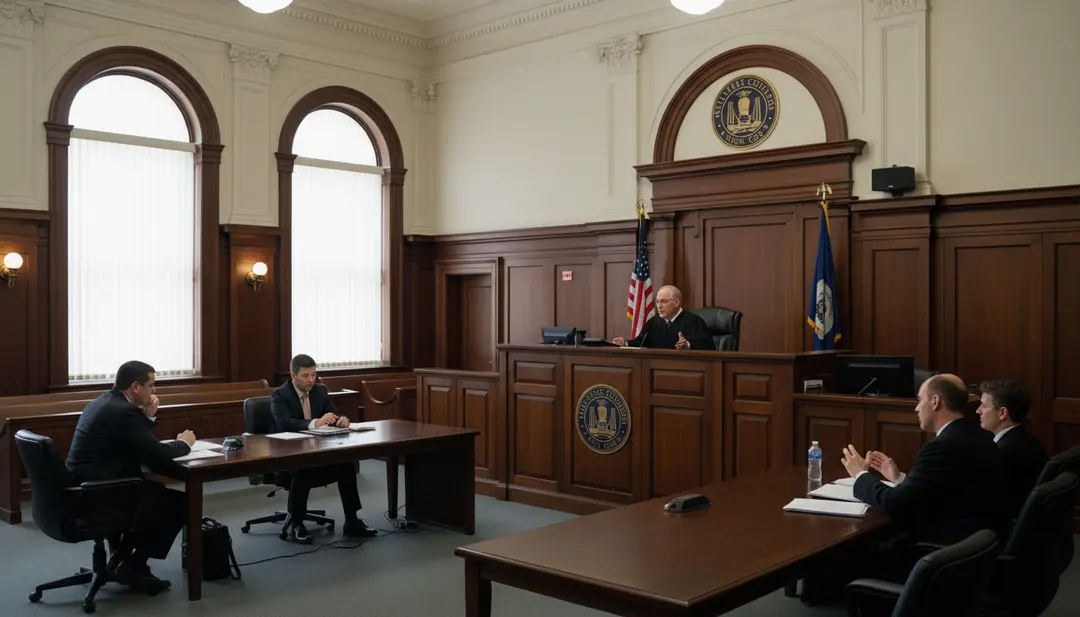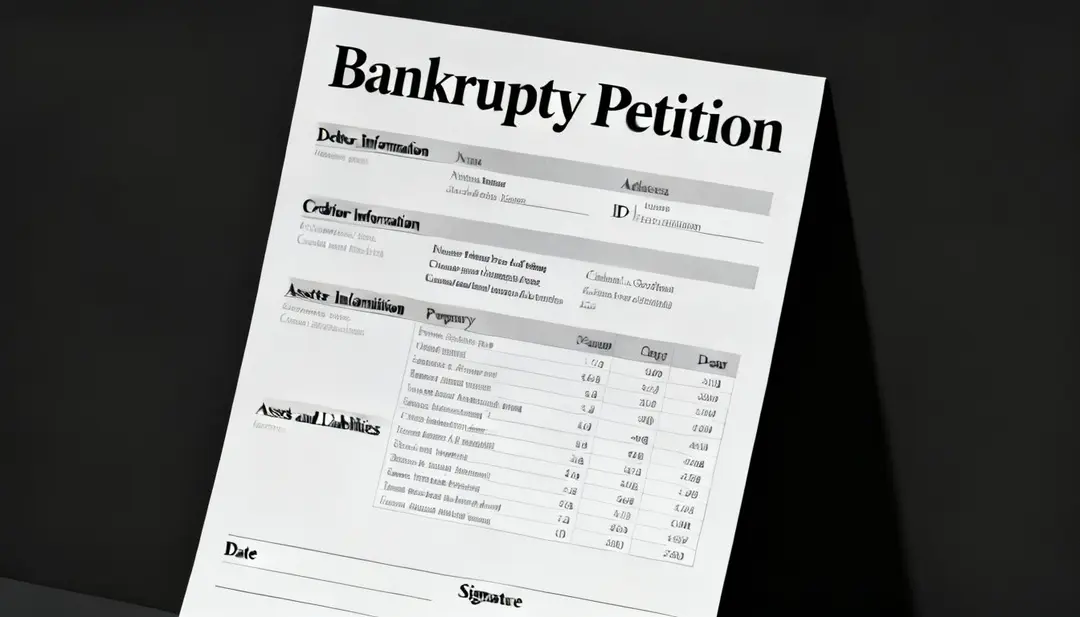Exterior Modifications Without Approval: When Can Arizona HOAs Legally Fine?
Managing changes to a home’s exterior is one of the most common challenges for any HOA board. When owners make exterior modifications without approval, it can undermine the community’s appearance, lower property values, and create confusion about HOA authority. That’s why clear review processes matter, and why enforcement becomes necessary when these rules are ignored.
Knowing when you can fine for unapproved changes isn’t just about having power—it’s about protecting your community’s standards and treating everyone fairly. In Arizona, the ability to impose fines depends on following proper legal steps and your governing documents. If you’re a board member in Phoenix, Tucson, or elsewhere, working with an experienced Arizona HOA Attorney, a Phoenix HOA Lawyer, or a Tucson HOA Attorney helps protect both your association and its members.
At Halk, Oetinger, and Brown, we help hundreds of communities with efficient, reliable legal services. With our flat-rate approach and deep understanding of exterior compliance, we’re the first call for planned communities that want results without endless hours or surprises. For more about handling architectural changes, see our guide to Architectural Guidelines for Arizona HOAs.
Understanding Exterior Modifications Without Approval
Exterior Modifications Without Approval often lead to friction between homeowners and HOA boards. If you've ever spotted an unapproved paint color or noticed a new patio that didn't go through the proper review, you're not alone. These situations can disrupt community harmony and weaken the authority of your association's rules. For Arizona HOAs, clear policies and consistent enforcement help maintain order—but enforcement starts with understanding why approvals matter and what steps should happen when owners skip them.
Why HOAs Require Approval for Exterior Modifications
Every HOA wants to preserve property values and keep the community looking cohesive. That's where approval processes come in. When a homeowner skips the approval:
- The community's standards can suffer.
- Other owners may be tempted to make their own unapproved changes.
- The HOA's legal ability to enforce its rules may be questioned.
Approval isn’t just red tape. It’s a protective barrier for your investment and your neighbors’ homes. When owners bypass this process, it can feel like a broken fence—boundaries become unclear and problems pile up fast.
Common Situations Where Approval Gets Overlooked
Homeowners might skip HOA approval for plenty of reasons, but some exterior modifications are more frequently done without permission:
- Installing patios, pergolas, or backyard structures.
- Changing exterior paint colors or roof materials.
- Adding or removing landscaping elements.
- Upgrading fencing, driveways, or lighting.
Sometimes, it’s intentional. Other times, owners may not realize approval is needed. Either way, these shortcuts create legal and practical headaches for your board.
Risks of Allowing Unapproved Changes to Stand
Letting unapproved changes slide might seem easier in the short term, but it brings long-term risks:
- Undermining community standards and the authority of the board.
- Creating uneven enforcement, which can lead to claims of unfair treatment.
- Making it harder to enforce rules with other owners in the future.
- Limiting the board’s ability to maintain curb appeal across the neighborhood.
Enforcing your rules consistently is essential to avoid opening the door to even more violations. For more details on the legal challenges HOAs face in compliance, explore the Arizona HOA compliance challenges page.
How the Right Legal Partner Can Help
Working with an experienced Arizona HOA Attorney provides peace of mind when dealing with Exterior Modifications Without Approval. The right legal team:
- Reviews your governing documents and enforcement procedures.
- Helps issue proper notices and, if needed, supports you through hearings or mediation.
- Advises on the best steps for fines and potential legal action.
Whether you're in Phoenix, Tucson, or anywhere in Arizona, partnering with a knowledgeable Arizona HOA Law Firm like Halk, Oetinger, and Brown helps keep your community on track and your board protected. Our seasoned attorneys are skilled at identifying risks, suggesting tailored solutions, and ensuring your association enforces its rules lawfully and fairly.
Legal Authority for HOAs to Regulate and Fine Unapproved Modifications
Understanding exactly when and how your Arizona HOA can regulate exterior modifications is key to maintaining control and credibility. If your board doesn't back up its governing documents with lawful, consistent enforcement, community standards can quickly unravel. This section breaks down the legal foundation that empowers HOAs to address and fine for Exterior Modifications Without Approval—giving you the confidence to act decisively and fairly.
Authority Rooted in Governing Documents
Your HOA's enforcement powers begin and end with your governing documents. These include the Declaration of Covenants, Conditions, and Restrictions (CC&Rs), bylaws, and rules. Most Arizona associations have clear language requiring written approval for any exterior changes. Without this, it's tough for your HOA to demand correction or levy fines.
Key elements found in CC&Rs often include:
- Approval requirements for structural and aesthetic modifications.
- Specific processes for submitting requests and timelines for board decisions.
- Descriptions of violations and steps for addressing unapproved work.
When homeowners bypass these requirements, your ability to impose fines is directly linked to what's written in your documents. Having clear, accessible rules not only deters violations but also strengthens your legal standing if owners resist or challenge enforcement.
Legal Support from State Law
Arizona law supports associations in enforcing their governing documents. The Arizona Planned Communities Act and the Arizona Condominium Act give HOAs clear authority to regulate owners' actions and maintain community standards. Boards can fine homeowners for violations, provided you follow due process.
If your documents are silent or unclear, do not move forward without advice from an experienced Arizona HOA Attorney. The wrong move exposes your board to legal risk and may invite costly disputes.
Due Process Requirements Before Fining
Even with authority on your side, you must follow procedural safeguards before levying fines for Exterior Modifications Without Approval. Arizona law generally requires:
- Written notice of the violation and potential fine.
- A reasonable opportunity for the homeowner to respond or be heard.
- Documentation of the violation, board action, and compliance steps.
Skipping these steps can make fines unenforceable, or even lead to lawsuits from frustrated owners. Keeping a fair, transparent process at the center of your enforcement protects both the board and homeowners.
Escalation Options: Fines, Corrections, and Legal Action
Fining is just one step in the enforcement ladder. Many boards start with written warnings or requests to reverse unauthorized changes. If the owner refuses, recurring fines or legal proceedings may become necessary. In severe cases, the association can pursue court orders to remedy the violation.
If your board is unsure about how far to push or which enforcement path to take, reach out to a skilled attorney, such as the Phoenix HOA Lawyer John Halk or a Tucson HOA Attorney like Philip Brown, for tailored advice on the nuances of Arizona law.
Specialized Legal Services for Arizona Associations
At Halk, Oetinger, and Brown, we know the challenges you face when balancing enforcement and community harmony. Our firm provides tailored solutions with a focus on clarity, speed, and fairness. With our flat-rate billing and deep knowledge of assessment collections, you'll find an efficient partner for handling fines and Exterior Modifications Without Approval. For a deeper look at how strong legal partnerships improve board effectiveness, explore our guide to improving HOA assessment collections.
When your board takes enforcement seriously, you protect the look and integrity of your community—without sacrificing trust or running legal risks.
When Can You Fine for Exterior Modifications Without Approval?
When dealing with Exterior Modifications Without Approval, HOA boards in Arizona must follow not just state law and their own documents, but also careful, consistent procedures. Fining owners for unapproved changes is only fair—and legally defensible—if you apply your policies the same way in every case. Building trust means more than sending notices and collecting fines; it requires open communication and a solid foundation of fairness.
The Role of Board Discretion and Consistency in Enforcement
Consistency in enforcement is not just a good habit—it’s the bedrock of a fair and respected HOA. When your board uses discretion, do it with a clear, structured approach that never feels arbitrary. Selective enforcement—where some owners face fines and others don’t—can spark claims of favoritism, threaten board credibility, and open the door to legal challenges.
Every Arizona HOA Attorney would agree: consistency protects you. Fair enforcement does more than avoid lawsuits; it shapes community standards and supports property values. Stick to your CC&Rs and enforcement policies each time:
- Document violations with photos, dates, and specific details.
- Apply the same procedures for all homeowners, regardless of status or board relationships.
- Keep a record of past enforcement actions to show you treat everyone equally.
Enforcement is about trust. Regularly reviewing your approach ensures your reputation stays strong. For more detail on this topic, you’ll find a complete overview of enforcement protocol in our Arizona HOA Board Covenant Enforcement resource.
Communication and Avoiding Escalation
Clear, early communication transforms how owners respond to enforcement—and often prevents violations before they start. Instead of simply issuing fines, reach out directly whenever possible. Make your process for Exterior Modifications Without Approval easy to understand and accessible.
When owners receive friendly reminders and transparent instructions, confusion gives way to cooperation. Effective steps include:
- Send written reminders about the approval process before large project seasons.
- Offer educational sessions or written guides on what requires approval and how to request it.
- Provide easy access to contact information for architectural review committees.
Consider sending a step-by-step “How to Get Approval” checklist with every violation notice or linking to it from your digital resources. This extra touch can quickly defuse defensiveness and show your board’s commitment to supporting residents—not just policing them.
If you want practical tips to build a more knowledgeable, confident board, check out our Important Advice for Arizona HOA Board Members. With a little upfront effort, you’ll see fewer violations, smoother processes, and a stronger community reputation across your entire association.
Don't underestimate the value of proactive education paired with firm, even-handed enforcement. This combination sets your board—and your neighborhood—apart from the rest. If you run into roadblocks or need legal backup, reach out to an experienced Phoenix HOA Lawyer or Tucson HOA Attorney for reliable help in safeguarding your enforcement policies.
Legal Considerations and Seeking Professional Guidance
Fining homeowners for Exterior Modifications Without Approval can push your board into difficult territory. It goes beyond just following CC&Rs or state law; it’s about reducing risks, encouraging compliance, and handling pushback with professionalism. Arizona HOAs that rely on clear written procedures and expert legal counsel are far better equipped to resolve disputes and defend their decisions.
Responding to Owner Pushback and Legal Challenges
When owners resist your enforcement efforts or suggest possible legal action, preparation is your best ally. Arguments may range from claims of selective enforcement to threats of lawsuits or even accusations that the HOA board is acting beyond its authority. How you respond—and how well your process is documented—will determine your success.
Here’s a tactical approach for handling disputes or legal threats:
- Maintain detailed documentation: Keep clear records of every notice, photograph, correspondence, and decision regarding each violation. Consistency is the key to defending your process.
- Stick to established policies: Always follow your CC&Rs and enforcement policy word for word. Use scripts and checklists when communicating with homeowners to guarantee equal treatment.
- Communicate calmly and professionally: If a homeowner pushes back, respond in writing. Clarify the steps they can take, the consequences for non-compliance, and their right to request a hearing. Stay factual, courteous, and non-confrontational.
- Consult experienced counsel when needed: When disputes escalate or legal threats arise, rely on an Arizona HOA Attorney. Don’t attempt to “wing it” with ambiguous or undocumented decisions.
With help from a qualified attorney, your board can avoid costly mistakes and resolve conflicts before they grow. The attorneys at Halk, Oetinger, and Brown, for instance, understand Arizona’s HOA laws inside and out. They focus on guidance that solves problems while keeping your legal expenses predictable with flat-rate general counsel services.
It’s always wise to establish a direct relationship with an experienced counsel like Kelly Oetinger Profile, who knows how to protect your association’s interests from day one.
Want even more robust legal support? The team at Halk, Oetinger, and Brown handles all aspects of HOA operations, compliance, and litigation. Review the firm’s Association Governance Services to see how structured, proactive legal guidance strengthens your community’s authority in difficult situations.
When owners challenge your authority or threaten legal action, fall back on your documented procedures and the support of seasoned legal professionals. Preparation and prompt expert advice keep your HOA board effective, fair, and confident in enforcing Exterior Modifications Without Approval.
Frequently Asked Questions About Exterior Modifications and Fines in Arizona HOAs
HOA board members face many questions about when and how to fine for Exterior Modifications Without Approval. Clear answers help boards build trust and keep enforcement efforts consistent. Below, you'll find common FAQs—along with straightforward guidance for handling these situations in Arizona communities.
What Counts as an "Exterior Modification" Under HOA Rules?
Exterior Modifications refer to any changes affecting the outside appearance or structure of a unit or lot. This often includes:
- Painting or altering exterior surfaces
- Changing roofing materials or colors
- Installing structures like patios, fences, or sheds
- Major landscaping changes or removing trees and bushes
- New doors, windows, or exterior lighting
Always check your governing documents for specific definitions and examples. Each association can list different items or have unique standards. If you’re uncertain, your board should consult with an Arizona HOA Attorney to avoid guessing.
Do Owners Always Need Written Approval Before Starting Work?
Nearly every Arizona HOA requires written approval before making Exterior Modifications. Skipping this step usually violates the association’s CC&Rs or rules. Approval helps maintain a uniform look, protects property values, and reduces future disputes between neighbors.
Some minor repairs or maintenance may be exempt, but significant changes almost always require a formal request. Unapproved work can trigger enforcement action, so reminding owners up front helps prevent costly mistakes.
How Much Notice Must HOAs Give Owners Before Fining?
Arizona law sets clear due process steps before issuing fines for Exterior Modifications Without Approval:
- Written notice describing the violation and the potential fine.
- Clear instructions for how to fix the problem or request a hearing.
- A reasonable opportunity—often at least 10 days—for the owner to respond or cure the violation.
Detailed notice and hearing rights are essential. Skipping steps gives owners leverage in disputes and may make your fines unenforceable.
Can an HOA Require an Owner to Restore the Property as Well as Pay a Fine?
Yes. In most cases, the board can require the owner to reverse the unapproved modification in addition to paying fines. Restoration powers must be supported by your governing documents and follow state law. Reasonable deadlines and written instructions help owners understand exactly what’s required.
If the board collects the fine but ignores the original violation, it risks uneven enforcement claims from neighbors. Keeping restoration and fining procedures clear keeps your HOA on solid ground.
What Happens if an Owner Refuses to Comply?
If the owner ignores notices and fines, the board has options:
- Issue escalating fines or daily penalties (check your documents for limits)
- Suspend certain community privileges (if your rules allow it)
- Seek mediation, arbitration, or legal action
Often, a letter from an experienced Arizona HOA Attorney will prompt cooperation and underscore the board’s authority. Getting legal guidance on stubborn or repeat violations is money well spent to avoid future headaches.
Are There Risks If an HOA Fines Without Proper Authority or Notice?
Yes. Fining for Exterior Modifications Without Approval—without following the right process—can open the board up to legal challenges, including:
- Owners contesting fines in court
- Claims of selective enforcement or board overreach
- Arizona Department of Real Estate complaints
Protect your association by documenting every step and sticking to board policies. If you’re unsure, consider periodic HOA compliance advice from skilled legal counsel to keep your enforcement program on track.
Who Can Help Boards with Tough Exterior Modification Violations?
Legal issues involving fines and enforcement often need personal attention. Many Arizona boards choose flat-rate counsel to avoid surprises and keep costs predictable. Whether your community is in Phoenix or Tucson, working with a reputable Phoenix HOA Lawyer or Tucson HOA Attorney ensures your association’s interests come first.
At Halk, Oetinger, and Brown, you get efficient service, prompt responses, and a focus on solving problems—not billing hours. For more advice on Board governance, convenants, and enforcement, check out the full offering of Covenant Enforcement Services available through our team.
Getting exterior modification enforcement right gives your board authority and supports your entire community’s reputation. Stay clear, stay fair, and when questions pop up, lean on proven legal support to keep your association protected.
Conclusion
Handling Exterior Modifications Without Approval takes clear steps, consistent enforcement, and a strong legal foundation. Your board must follow CC&Rs and Arizona law, apply every policy equally, and document actions at each stage. Fair, predictable enforcement builds community trust and avoids legal challenges. When faced with difficult violations or pushback, rely on skilled legal support. An experienced Arizona HOA Attorney can prevent costly mistakes and guide your response.
At Halk, Oetinger, and Brown, you benefit from streamlined, flat-rate legal services that prioritize your association’s stability. You get tailored solutions for everything from assessment collections to covenant enforcement. If your HOA is ready for reliable legal support or has questions about moving forward, connect with a seasoned Tucson HOA Attorney like Andrea Miska attorney profile. Safeguarding your community starts with clarity and expert guidance. Thank you for building a stronger, more cohesive neighborhood—your dedication keeps Arizona communities thriving.













